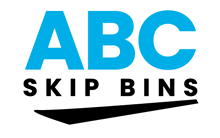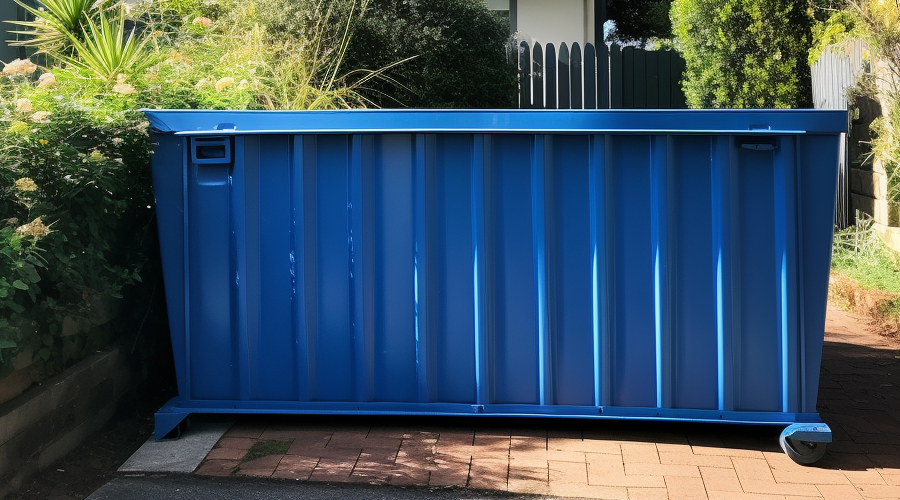Queensland’s Skip Bin Regulations
A Guide for Homeowners and Businesses
If you’re planning a home renovation or cleaning out your business, hiring a skip bin can make the job much easier.
However, there are important regulations surrounding skip bins that you need to be aware of in Queensland.
Failing to follow proper skip bin procedures can lead to fines, environmental damage, or even injury.
Professional skip bin companies will explain the key rules and regulations for skip bins in Queensland to ensure you stay compliant and keep your project on track.
Confusing and Complex Skip Bin Rules
For many homeowners and small business owners, navigating Queensland’s skip bin laws can be frustrating:
- There are numerous regulations at both state and local council levels.
- Rules differ across local council boundaries, making it hard to keep track.
- Details like size limits, placement of skip, and waste type can be confusing.
- Fees and licensing requirements add complexity.
When you just want an efficient, cost-effective way to dispose of waste, this web of regulations seems excessive. Also, non-compliance can lead to big headaches down the road.
Understanding Key Skip Bin Regulations
While skip bin rules aim to protect the public land and environment, they don’t have to be an obstacle. This guide cuts through the confusion by focusing on the core regulations in Queensland:
- Choosing the right size skip bin
- Placement and transport rules
- Waste disposal regulations
- Licensing requirements
Understanding these key areas makes it much easier to rent and use a skip in compliance with the law. Let’s look at each item in more detail:
1. Choosing the Right Size Skip Bin
Skip bins in Queensland come in a range of sizes, from 3m3 mini skips up to 14m3 giant bins. The size you need will depend on:
- Amount of waste to be removed
- Space available at your property
- Weight limits for transporting the full bin
As a rule of thumb, here are typical uses for different skip sizes:
Skip Bin Size and Typical Uses
- 3m3 mini skip – Bathroom renovations, cleaning out garages, small yard cleanups
- 4-6m3 skips – Kitchen renovations, shop refits, medium yard cleanups
- 8-10m3 skips – Major home renovations, office refits, large yard cleanups
- 12-14m3 skips – Full house renovations, factory cleanouts, construction sites
However, local councils also place limits on skip bin sizes, so you’ll need to check with regulations in your area. For example, the Queensland police and Brisbane City Council allow up to 4.5m3 on residential properties and 7m3 for commercial sites.
2. Placement and Transport of Skip Bins
Where and how you locate your skip bin is important for compliance in Queensland. Here are key regulations:
- Cannot obstruct vehicle or pedestrian traffic
- Generally permitted on private property, not on public roads and public land
- Local council approval is often required before placing skips on footpath or roadway
- Must be clearly visible with reflectors if placed on the roadside
- Only licensed waste transporters can haul skip bins on public roads and public land
So the standard procedure is to place your skip hire and utility pit completely on your private property, such as on a driveway or in the backyard. Avoid nature strips, pedestrian access, or roads unless you have specific council approval. And always use a licensed operator to drop off and collect the bin.
3. Waste Disposal Regulations
Strict rules apply to the types of waste that can and cannot be disposed of in a skip bin. Here are some key requirements in Queensland:
- No liquid wastes
- No asbestos or hazardous materials
- Limits on soils, bricks, and concrete
- No car bodies or tyres
- No commercially regulated waste without approval
Reputable skip companies can advise on permissible volumes of building materials like soils and concrete. And they should ensure the skip contents are disposed of appropriately based on waste type.
4. Licensing Requirements
Operating skip bins for commercial gain requires licensing in Queensland. Key requirements include:
- Recycling and waste transport licence to operate vehicles hauling skip bins on public roads
- Development approval in some council areas to place skip bins from time to time
- Waste facility licence to handle the disposal of skip bin contents
So always check a skip bin provider holds all required licenses before hiring. Unlicensed operators could get you in legal trouble for non-compliant waste disposal or transport.
Key Takeaways on Skip Bin Regulations
While skip bin rules can seem tedious, following core requirements comes down to a few key steps:
- Choose a bin size suitable for your needs and property
- Position the skip safely on your private property
- Avoid restricted waste types
- Use a fully licensed operator
Observing these basics makes your skip rental smooth and legal. For more help, reputable companies like National Waste Services offer guidance on meeting skip regulations across Queensland councils.
With the right knowledge, skip bins can provide a safe, efficient waste solution for your next project, without regulatory headaches.
Frequently Asked Questions on Skip Bins
Can I put a skip bin on the road or footpath?
Generally no. Skip bins are usually only permitted on private property in Queensland. Placing them on public roads or footpaths requires specific approval from your local council.
What are the maximum skip bin sizes?
Maximum sizes vary by council across Queensland. Common limits are around 4.5m3 for residential properties and 7-8m3 for commercial sites. Check with your local council for specific rules.
Do I need a licence to hire a skip bin?
No, the customer does not require a licence. However, skip bin operators must hold all required waste transport and disposal licences. Always check a company is fully licensed before hiring.
Can I put bricks, soil, or concrete in a skip bin?
Yes, but quantities are often restricted. For example, many councils allow up to 200kg per cubic metre of bin capacity. Check with the skip operator for specific limits.
What happens if I put prohibited waste in a skip bin?
You could face fines or penalties. Licensed operators are required to follow strict procedures for handling and disposal based on waste type. Putting prohibited items like asbestos in a skip bin causes issues.
Conclusion
Following skip bin regulations may seem complicated, but it comes down to common sense steps.
Choose an appropriate size bin for your needs, position it safely on private property, avoid prohibited waste, and hire licensed operators.
Do your homework and the process doesn’t have to be painful.
At the end of the day, we all want an efficient price, cost-effective solution for our waste disposal.
By understanding the intent behind skip bin rules, we can work with the system, not against it.
Doing so keeps our renovation projects smoothly on track and protects the broader community.



